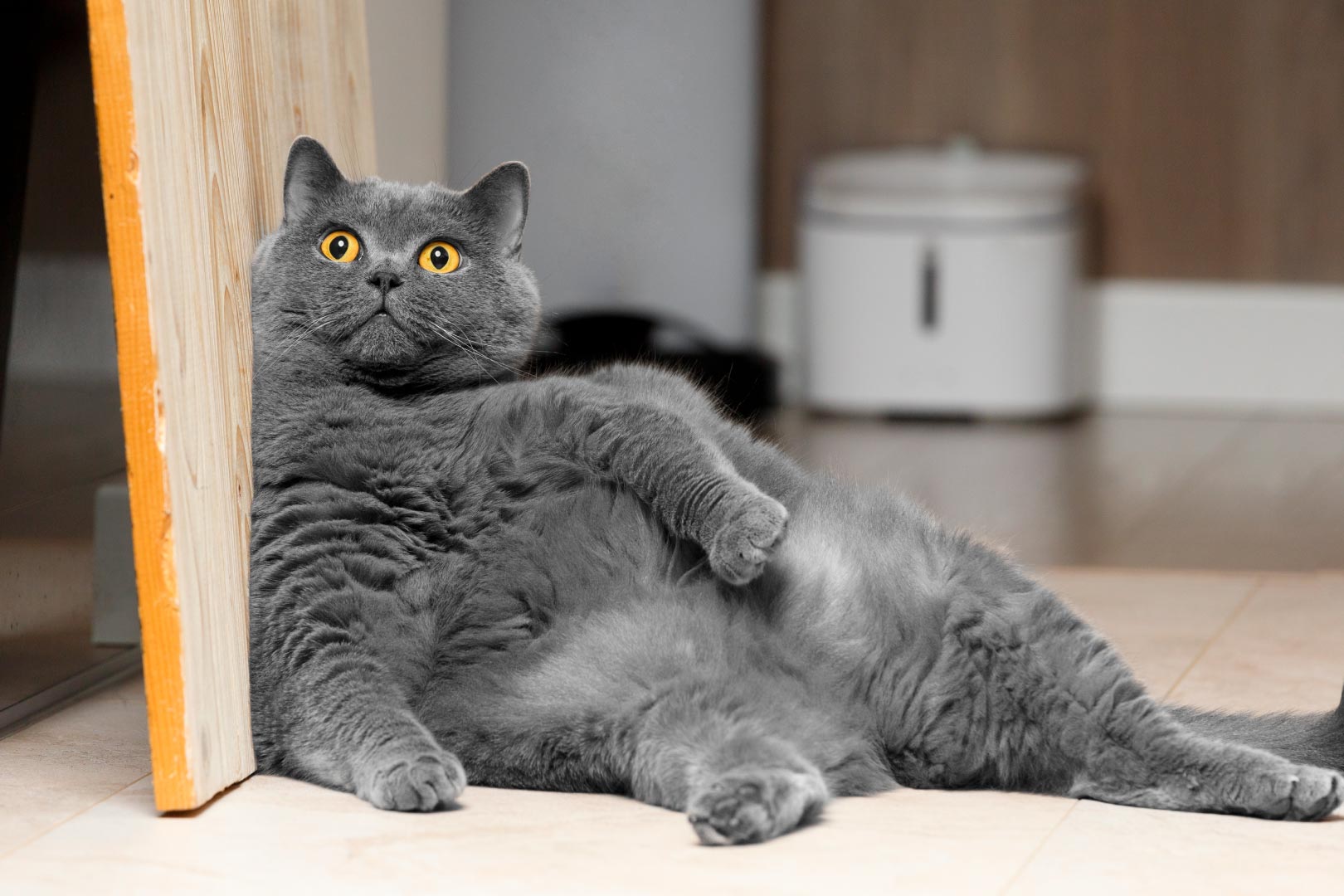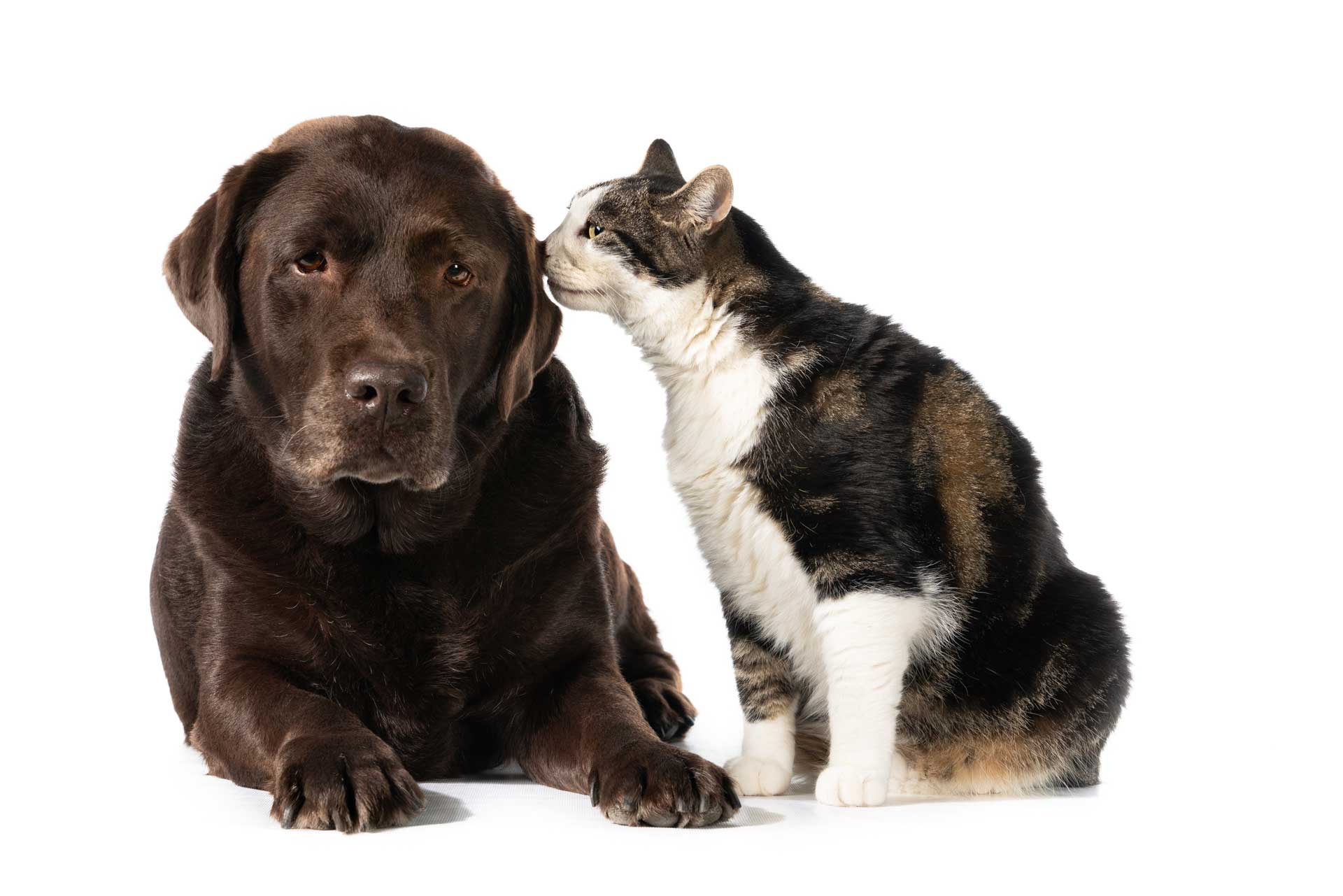Fortunately, helping your cat lose weight doesn’t have to be stressful – for either of you. Here’s how to support your feline friend in getting back in shape gently, gradually, and with care.
Start with a Vet Visit
The first step isn’t the scale – it’s the vet. Extra weight can sometimes be a symptom of underlying health problems like hormonal imbalances or thyroid issues. A veterinarian can rule those out and recommend your cat’s ideal target weight.
Change the Feeding Approach – Not Just the Food
- Introduce changes gradually: Abrupt calorie cuts can be dangerous for cats (e.g., causing fatty liver disease). Instead, reduce daily portions by 10–20% and monitor progress.
- Choose „light“ or weight-management food – lower in calories but rich in proteins to maintain muscle.
- Avoid free feeding (leaving food out all day). Instead, feed your cat at set times.
- Limit treats. If you give them, make sure they don’t exceed 10% of daily caloric intake.
Encourage Movement – Through Play
Cats may not love dieting, but they do love to play. Add more activity through:
- Laser toys or wand toys with feathers – these trigger natural hunting instincts.
- Interactive feeders or puzzle toys – make them work for their food.
- Cat trees or climbing shelves – encourage climbing and jumping.
Note: Even five minutes of daily play makes a difference – and strengthens your bond, too.
Track Progress – But Stay Calm
Cats should lose weight slowly – around 1% of their body weight per week (e.g., 50–100g for the average cat). No need to rush. Weight loss is a journey, not a race.
Keep a journal of meals and activities, and watch for changes in appetite, energy, and behavior – they can indicate how well the plan is working.
Keep Routine and Comfort Intact
Cats dislike sudden changes. So introduce new habits quietly and calmly. Don’t punish begging or lack of interest in toys – instead, offer alternative stimulation.
Finally – Be Patient (and Proud)
Helping your cat lose weight is one of the greatest gifts you can give: a longer, healthier, happier life. The process takes time and consistency, but the rewards are priceless – better wellbeing for your pet and more shared moments with you.
Your cat may not know she’s on a diet – but she’ll feel the difference when she moves easier, sleeps better, and enjoys life more fully. And you’ll know you made the right choice.



